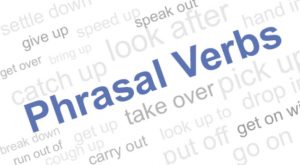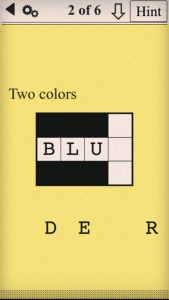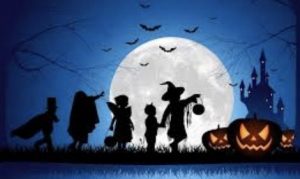 Phrasal Verb: A phrase – a main verb plus 1 or 2 other words – that is used as a verb.
Phrasal Verb: A phrase – a main verb plus 1 or 2 other words – that is used as a verb.
For example: pick up; take off; get away with
Phrasal verbs are very common in English. They can be confusing because their meaning is often quite different from the meaning of the main verb.
For example, When you look at something, you see it. When you look up something, you try to find information about it.
On the English Club website, you can study a new phrasal verb every day. They include some example sentences, plus a little quiz to see if you understand. You can also look at a list of 200 common phrasal verbs.
 Tiny Little Crosswords is a new free app for iPhones and iPads. Each puzzle is small – only a few words – so you can finish a puzzle quickly. Some are easy, and some are more difficult. Here are a few examples:
Tiny Little Crosswords is a new free app for iPhones and iPads. Each puzzle is small – only a few words – so you can finish a puzzle quickly. Some are easy, and some are more difficult. Here are a few examples:





 The English word leopard has the same language origin as the Spanish and Portuguese leopardo, and the French léopard. There are many other words like this that are very similar in English and other languages. They are called “cognates”. One good way to quickly increase your English vocabulary is to study a list of these similar words.
The English word leopard has the same language origin as the Spanish and Portuguese leopardo, and the French léopard. There are many other words like this that are very similar in English and other languages. They are called “cognates”. One good way to quickly increase your English vocabulary is to study a list of these similar words.